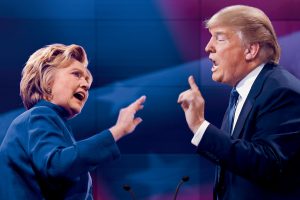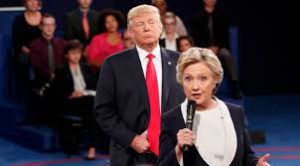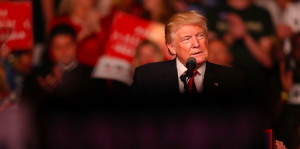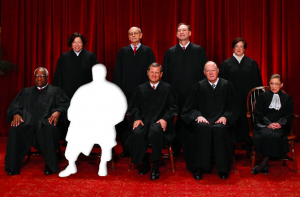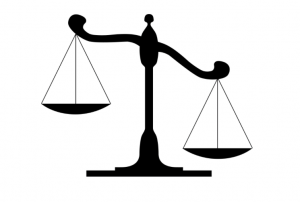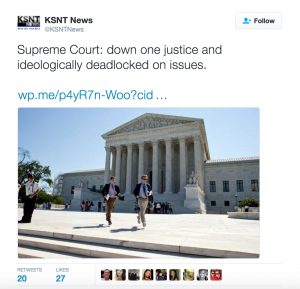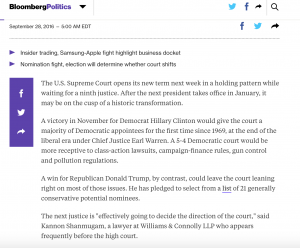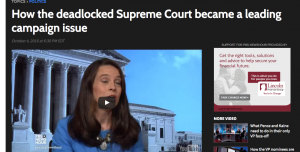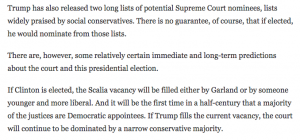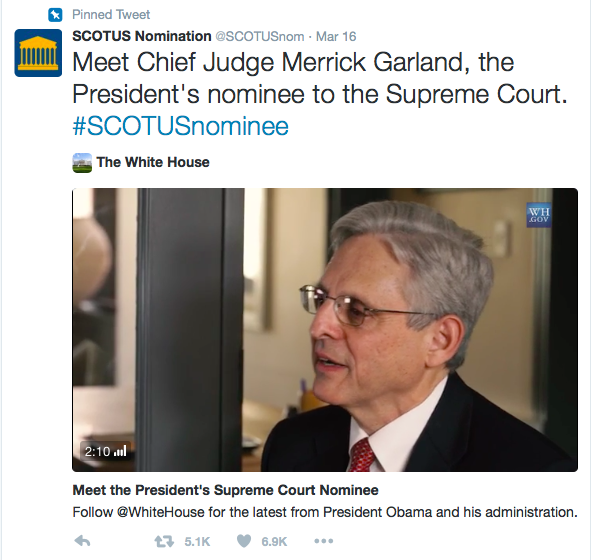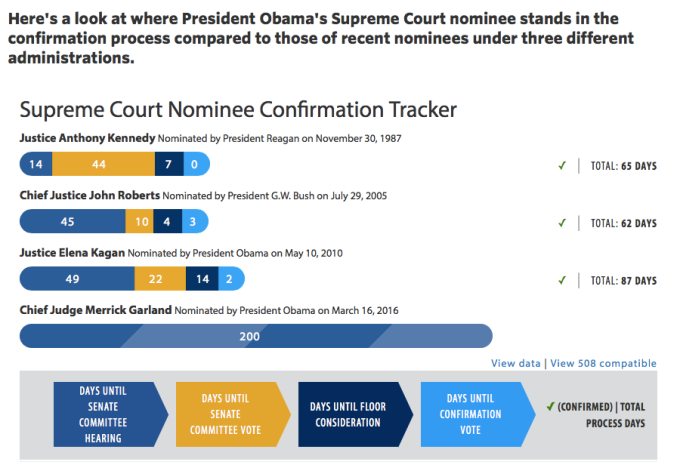The Rhetoric of Supreme Court Appointments- Brittany Ellexson
Trump vs. Hilary: Supreme Court Style
- In the heat of this election, the issue of choosing the next President comes along with who will choose the next Supreme Court Justice. Both Hilary Clinton and Donald Trump obviously have very different views on how they would run the country if elected by voters, and with their very different views comes very different nominees for the current vacant Supreme Court Justice seat.
- Hilary wants a Supreme Court Justice who has a real understanding of every day life and someone who can relate to voters and their needs. According to The Los Angeles Times, “I want a Supreme Court that will stick with Roe v. Wade and a woman’s right to choose,” she said, “and I want a Supreme Court that will stick with marriage equality.”
- On the other hand, Trump favored past Supreme Court Justice Scalia and how he held up conservative views. Trump has released a list of 20 possible candidates that he would pick from if he was elected President.
Words are Just Words People
- In regards to the rhetoric surrounding this election and the issue of who will be the next appointed Supreme Court Justice, both candidates have deployed very different uses of language and how they choose to impact their voters.
- The rhetoric that Hilary has used throughout her campaign has been centered around conveying the message that Donald Trump is unstable and unfit as a candidate. With this, Hilary has pointed out that Trump is derogative of women and not respectful. A recent video leaked of Trump exploiting women has become a center of attack for Hilary. In the last Presidential Debate, Hilary pointed about that the video shows who Trump is as a man and the quality of his character.
- In defense, Trump has deployed the rhetorical strategy of the Apologia Discussion. He apologized for his, “locker room talk,” and that he is not that person. He asked voters for forgiveness and is trying to move on. He also is quoted saying, “words are just words people,” in response to Hilary’s ability to lead and he points out how she has unkept promises about change in her past positions.
- This recent issue brings up the question of Donald Trump’s character and his fitness ability of being President. With the Presidency, comes the responsibility of choosing the highest judge in our country’s legal system. Can a man like Trump responsibly choose the justice, or does his character and actions hurt his ability to lead as a public figure?

